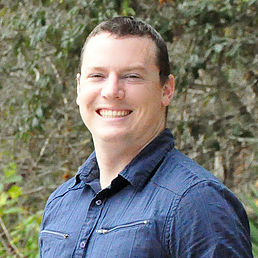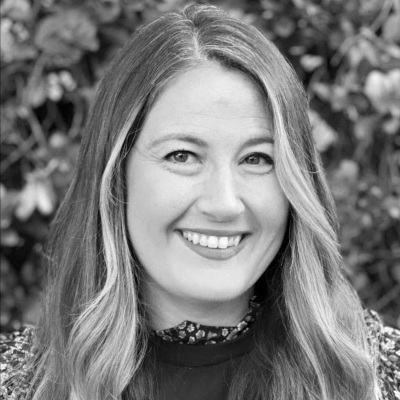Posttraumatic Stress Disorder affects approximately 4% of the general population[1]. There are over 600,000 possible combinations of PTSD symptoms[2], which include increased anxiety, irritability, depression, nightmares, avoidance of traumatic reminders or “triggers”, as well as negative thoughts about oneself, other people, or the world[3].
Negative Thoughts After Traumatic Events
Cognitive Therapy suggests that PTSD can be viewed as the result of conflict between beliefs[4]. For much of our lives we are taught the world, in theory, operates in certain ways and that certain “rules” are universally true. Fairy tales make good examples to provide concrete examples of “universal” consequence; “Good” is rewarded and “bad” is punished. Another example might that of “The Boy who cried wolf”, within which the truth is demanded, and when lies are told, immediately do harm. These Just World beliefs[5] do not always align with reality despite serving a valuable purpose. But how can such well-intentions narratives contribute or maintain traumatic events? What leads to negative thoughts after trauma? Consider the following “truths”:
Truth: Good things happen to good people
Truth: Bad things happen to bad people.
These represent perhaps the most common Just World Beliefs. Now, let us examine these beliefs within the context of a traumatic event.
Traumatic Event: I was violently assaulted and gravely injured
Most reasonable people would agree that the event, as described, is inherently a bad thing. And we have already subscribed to the belief that bad things happen to bad people. This can result in a cognitive dilemma during which we must reconcile due to the conflict of beliefs, as many times, we do not consider ourselves to be bad people.One potential course of action is assimilation, where we simply change the information (I was assaulted) to fit what we know about ourselves (I am a good person). An example of assimilation using our example of a violent assault would look like this:

Assimilation “resolves” the conflict of beliefs, but often fails to acknowledge our personal experiences. Alternatively, accommodation refers to changing our existing beliefs to accommodate new information as illustrated below.

Hollon and Garber [4] originally suggested that assimilation occurs more often than accommodation as “it appears easier to alter one’s conception of a single event than one’s entire world view”. Unfortunately, accommodation can result in extreme beliefs that are disproportionate.

“Why?” and “So What?” as shortcuts to Over-accommodated Beliefs.
Now that we are armed with an improved understanding of how traumatic experiences can change a person’s beliefs about themselves, others, or the world through assimilation or over-accommodation, let’s look at how these thoughts can be down and challenged.
It is not always the case that over-accommodated thoughts are readily apparent to those who experience them. In my work with clients, I find that these negative or exaggerated beliefs are often masked by several other thoughts that tend to appear less person-specific and may sometimes be entirely directed outwards, hiding any specific reference to the victim of the traumatic event at all. Take an example of a veteran who was victim to a mortar attack while in a city market. The unraveling of these layers of thought might look like this when confronted with the need to go to a crowded place:
In this example, the immediate thought when faced with a traumatic reminder (a crowded place) is several thoughts removed from the more problematic core belief that he will be responsible for a negative outcome. While we might be able to generate sufficient reasons why the concern about the crowd itself and the possibility of something bad happening might be minimal, failure to address the deeper, darker underlying thoughts (“I must protect my family” or “It will be my fault”) is akin to pulling a weed without eliminating a root, they are likely to return even in the face presence of objective reassurance. It can be the case that refining or replacing the deepest thoughts or core beliefs with more adaptive thoughts or beliefs will result in the more “surface level” thoughts diminishing in strength, distress, or significance.
Thoughtful Probing versus Brute Force
It is important to note that “So What?” and “Why?” are no silver bullets. In fact, they may need to be reworded to fit the specific situation to be effective, and sometimes, even tolerable (particularly if we’re asking victims, rather than ourselves). “Repeatedly asking “So What?” to friends or family we are trying to assist may be annoying at best and may come off as provocative or intrusive at worst. Rather, it is the essence of the questions “So what?” and “Why?” that is most important. They seek a further explanation that often illuminates central themes in trauma such as control, safety, esteem, intimacy, and trust. When language consistent with these themes appears in our thinking, we have likely identified a thought which may improve with more introspection.
Examination of the problematic belief and brainstorming object evidence that undermines the initial negative belief, as well as generating a more positive statement to consider in the future when that original is recognized opens pathways to improved emotional reactions. And, as the thinking goes, Better Thinking, Better emotions, a Better life.
Are you looking for help with PTSD? We can help.
About the Author:
Dr. Benson Munyan is a Clinical Psychologist licensed in both Florida and Arizona. He is the Director of Neurocove Behavioral Health and specializes in the assessment and treatment of anxiety, depression, and trauma-related disorders. Dr. Munyan earned his Doctorate in Clinical Psychology from the University of Central Florida. He currently holds clinical privileges at both Neurocove Behavioral Health and the Orlando Veteran’s Affairs Healthcare System. He has also previously published clinical research and articles in peer-reviewed journals including PLoS One and Clinical Case Studies.
References
4. Hollon, S.D. and J. Garber, Cognitive therapy. 1988.
5. Lerner, M.J., The belief in a just world, in The Belief in a just World. 1980, Springer. p. 9–30.
- Which Therapy is Best? - December 14, 2023
- How to deal with Burnout when you’re sick of everything and everyone. - February 23, 2022
- The Hidden Dangers of Social Media: How It Can Eat Away at Your Mental Health - August 21, 2021










